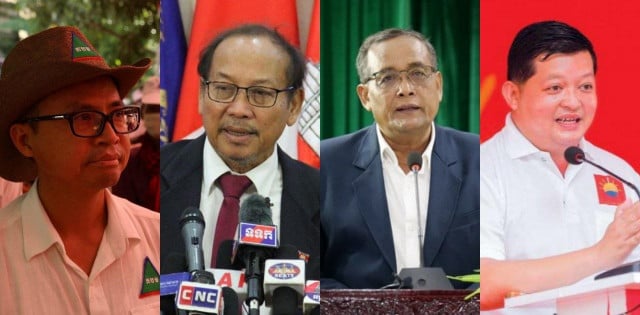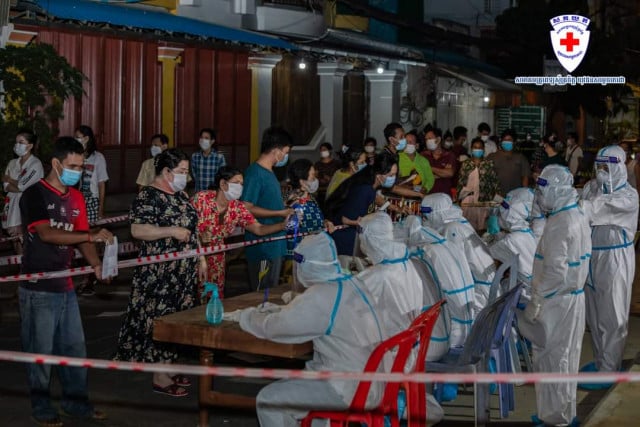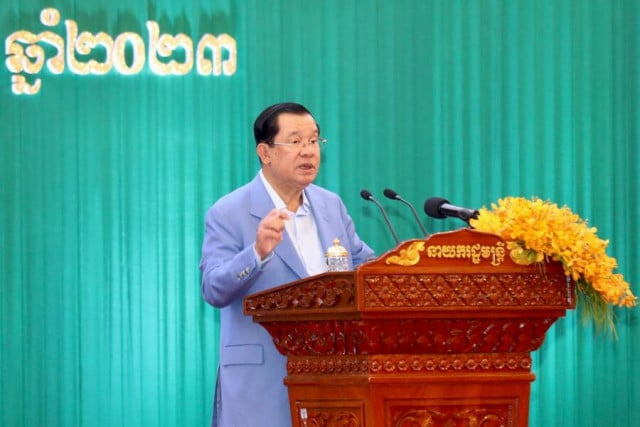Soaring Civil Servant Numbers Draw Fire

- By Lay Sopheavotey
- August 5, 2022 5:07 PM
PHNOM PENH – Politicians and civil society groups have criticized the widespread promotion of government officials, saying it is a waste of national resources.
However, the government says this is a transitional stage from the older to the next generation and numbers will fall.
The Grassroots Democratic Party (GDP) said it was unnecessary for government institutions to keep adding officials.
“All officials are paid from the national budget, and the national budget of $8 billion to $9 billion annually come from citizens’ tax payments as well as loans from foreign countries,” the party said in a Facebook post on Aug 2.
“The next generation will have the obligation to repay those foreign debts.”
There are now 10 deputy prime ministers while each ministry has 10 to 20 secretaries and undersecretaries of state. Each ministry and department has many deputy directors-general and deputy directors.
There are about 30 deputy commissioners in addition to the position of deputy governors of the capital, provinces and districts.
GDP secretary-general Sam In said if the government reduces the number of these officials, it will save money which can be used to strengthen the quality of human resources.
“A large number of people undermines the quality of the working process, as there are too many people for the job and they are not even sure what to do,” In said.
Government spokesperson Phay Siphan said in the context of the generational transition, there are many officials but most of the older officers are near retirement age.
This transition was to ensure that the leadership of the public administration runs smoothly.
Siphan said the transition was temporary. When there are five retiring officers, five young officers will be recruited to train with the previous generation.
“And in the future, the number of senior officials will decrease.”
However, Sam In said this was just an excuse. He said many civil servants were appointed in the 1990s because Cambodia needed to unite the nation.
Official positions should be reorganized. The government’s excuse undermined work efficiency and wasted a lot of money.
“I do not support Phay Siphan's argument. If the government has good governance, it will not completely lay off the old/senior officials,” he said.
“If the Grassroots Democratic Party were to rule, we would have a better solution. For example, we would recruit only one young official when two old officials retired.”
Kong Monika, president of the Khmer Will Party, said the head of the government is getting bigger than its body, referring to the increase in the number of provincial governors.
Monika agreed that as the government’s workload increases, so do its human resources needs. However, the recent increase in the number of provincial governors was not necessary.
“The purpose of the appointment is to divide up positions for their party officials, from the new to replace the old, as the old officials take up a higher position. I don’t find it useful for the nation at all,” Monika said.
Siphan said the duties and appointments increase because the government is strengthening and expanding the decentralized system at the sub-national level.
This helped the national level to reduce its responsibilities by urging the sub-national level to take on more work.
“Currently, the ministry has reduced assistance and is letting the sub-national level do the work by themselves, and the sub-national level also has more work to do than before. Therefore, we need to increase the number of officials such as deputy governors,” he said.
Policy analyst Meas Nee agreed that “the head of government is getting bigger than its body”.
Nee did not criticize or evaluate the work efficiency because he did not know the scope of the government workload in detail, but said when increasing duties such as positions, the government must study clearly the division of labor responsibilities as well as the size of the population.
“But, in the Cambodian context, I’ve seen that there’s a tendency for ‘You help me; I help you’,” Nee said.
Noticeably, the appointments always happen after elections, he added.
In response, Siphan said the government had thought clearly by studying the scale of progress in the country and preparing an action plan.
In June, the government decided to add more capital-provincial governors to reach 275 with 1,428 district governors nationwide.
There are 40,162 civil servants in Cambodia at the national level, of whom 12,612 are women. At the sub-national level, there are 173,114 officials, including 76,380 women, according to the Ministry of Public Work salary list for December 2021.
Cambodia has 25 provincial capitals with a total of 175 governors, each province and capital has seven deputy governors, 204 district governors, and a total of 1,020 district deputy governors.
After the approval of the Plenary Session of the Council of Ministers under the chairmanship of PM Hun Sen on April 1, the new Article 140 determines the composition of the Board of Governors of Phnom Penh with a maximum of 11 members, the board of provincial governors of seven to 11 positions, the district and commune boards with five to seven positions.
Originally written in Khmer for ThmeyThmey, this story was translated by Meng Seavmey for Cambodianess.















